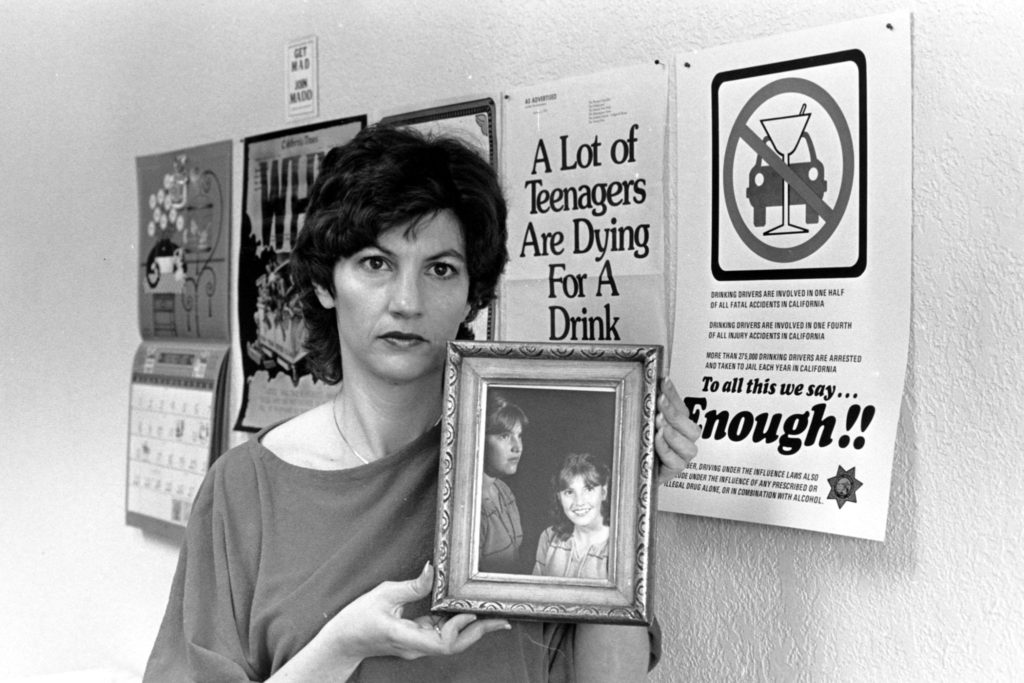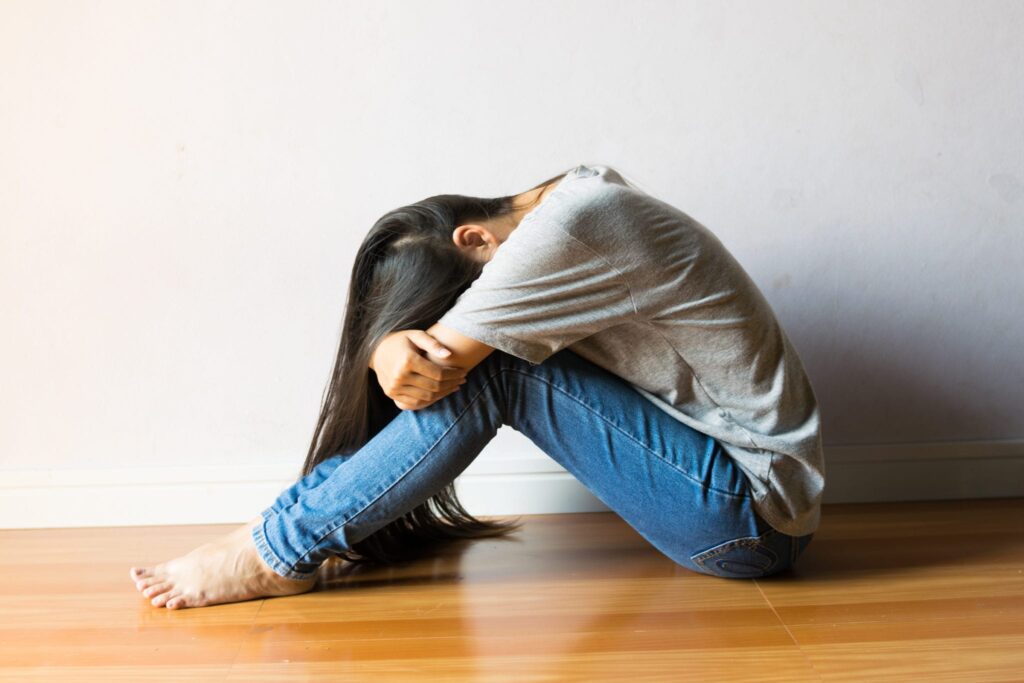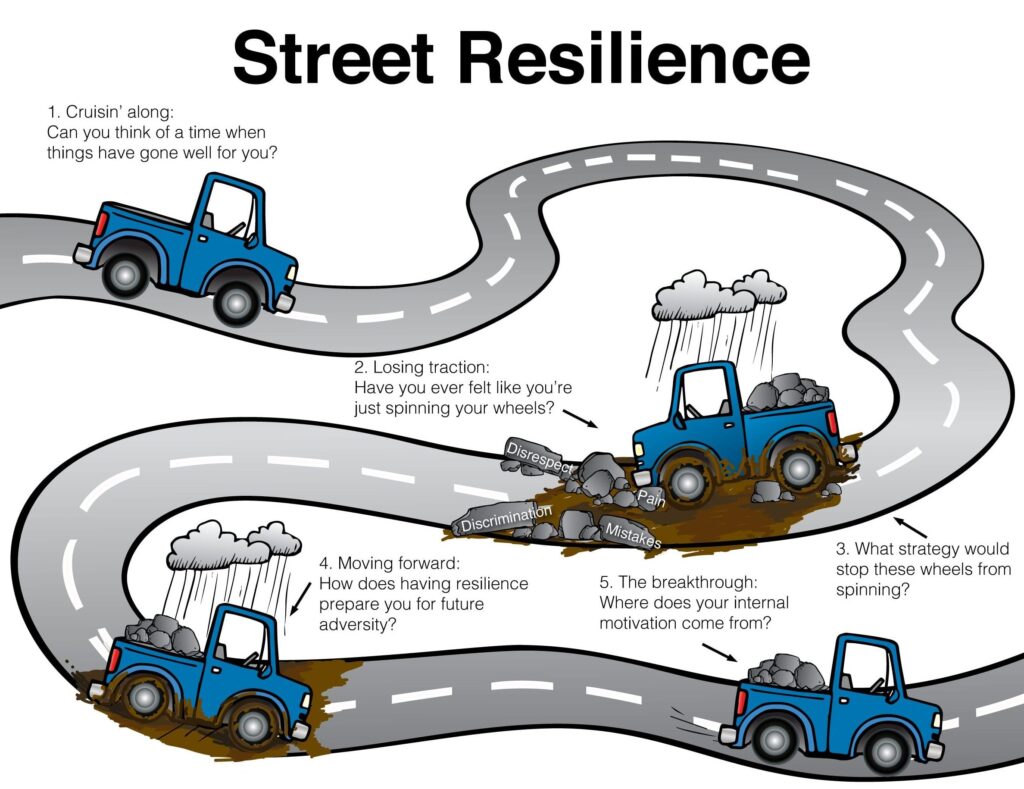Street Resilience
What is Street Resilience?
Street Resilience: When you have Street Resilience, you take the pain of disrespect, discrimination, and regret and use it as fuel to propel you forward. You direct your hurt and anger toward a cause rather than an individual.

Listen to this Chapter
Choosing Productive Over Destructive
There are countless examples of people who have used feelings of anger, frustration or rage as fuel toward something great. They used these feelings to positively change their world and the world of others.
Take Candy Lightner, whose 13-year-old daughter Cari was killed by a drunk driver one evening in 1980 on her way to a church carnival. Candy was enraged to learn that drunk driving was rarely prosecuted harshly. Consequently, she founded Mother Against Drunk Driving (MADD). Today, according to the organization’s website, MADD’s efforts have saved nearly 330,000 lives and counting.
Like Candy, many others in the world are fighting through the pain of discrimination and disrespect by taking action. In these moments, they seek to find a positive outcome. Many times parents will face this scenario when interacting with other parents, school systems, health offices, and many other organizations.

When these moments come, if our strong feelings lead to responses that hurt others or ourselves, it augments the problem. It can also perpetuate it by establishing an example. However, a parent with Street Resilience will do something productive about it, rather than throwing up the hands or retaliating in a destructive way.
Building a Street Resilient Family
The truth is, we will all face disrespect, discrimination, or the pain of mistake-making at some point in our lives. It’s vital, then, that we are not only prepared to channel our own experiences into productive outcomes but that we can help our children learn this skill as well. Here are some ideas:
When your children face disrespect – a school bully, a teacher who doesn’t like them, an unkind friend – sit down and talk about those emotions. Be empathetic as your child processes their anger about the experience, and let him/her know that it’s normal and OK to feel that way. Then comes the tricky part. Discuss with your child different options to respond to the disrespect. For a child who’s being bullied, you might arrange a meeting with the teacher or administrator. Talk about what can be done and how you can prevent it from happening to other children. To improve a relationship with a teacher, talk to your child about ways they can go the extra mile to show their teacher they really care about the class. This part will require creativity but will help your child be prepared to meet larger challenges and instances of discrimination.

Model Street Resilience in your own life. You can pull out Street Resilience anytime you experience injustice, feel disrespected, or feel that your identity has been challenged in some way. Street Resilience applies to a broad number of circumstances. It may be a job loss or an unexpected diagnosis. Perhaps you have experienced unkind remarks from others. It may come in the form of religious discrimination, racism, sexism, ageism, or homophobia. The list goes on.
When one of these things happens to you, pause for a moment before reacting. Determine how you’re going to respond in a Street Resilient way. How will you direct your energy at a cause, rather than a person? Is your response productive? That doesn’t mean that you can’t tell someone they’re wrong or defend yourself when necessary. It does mean you’re thoughtful in your approach and desire for a productive outcome. Afterward, talk to your kids about what happened. Discuss why you chose to respond that way.
Discussing Street Resilience with Your Child
Discuss what discrimination means with your child.
Ask your child what kind of discrimination and disrespect they see in their school. Have they ever experienced discrimination or disrespect themselves? What happened? How did they respond?
Pick out one instance where your child experienced discrimination or disrespect or saw it happening to someone else. What would be a positive, productive response they could try out in the future?
Ask your child for ideas on how your family can be more resilient during times when someone experiences pain or disrespect. Ask how they can support one another in those times?

Reflection
How did you respond the last time you felt disrespected or discriminated against. How about had a core aspect of your identity challenged in some way? What about the last time you felt angry about something that happened to your child? Are there ways you could have channeled those negative feelings into more productive responses? How can you remind yourself to harness the pain of similar situations in the future and use it as fuel?

